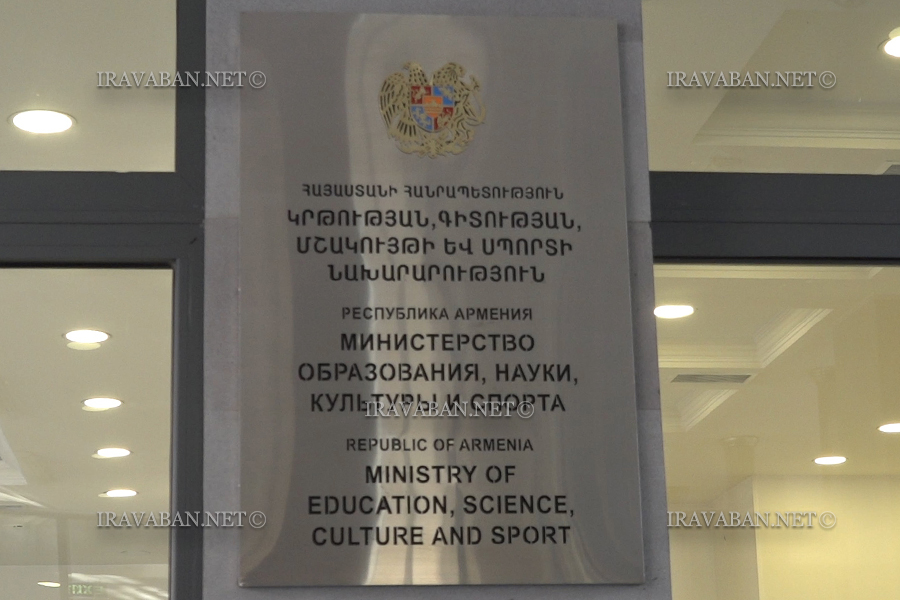Representatives of the RA Ministry of Education Science, Culture and Sport informed their international partners about the recent aggression by Azerbaijan, targeting Artsakh and Armenian civilian infrastructure.
We learn about this from the press release issued by the Ministry of Education, Science, Culture and Sport.
In the scope of the 6th Armenia-EU Sub-committee meeting – People to People on “Employment and Social Affairs, Public Health, Training, Education and Youth, Culture, Information Society, Audiovisual, and Science and Technology”, the Armenian representatives also informed their international partners about the recent aggression of Azerbaijan, targeting civil infrastructure in Artsakh and Armenia
The sitting, which was attended by employees of the relevant sectoral departments of the European Commission and representatives of the EU Delegation to Armenia, was co-chaired by the RA Deputy Minister of Education, Science, Culture and Sport of the RA Artur Martirosyan and Beatriz Salvador García, Deputy Head, ENP Strategy and Instruments Division, EEAS.
The Armenian side briefed its EU Office partners on the aggression of Azerbaijan in violation of all norms of international law from 27 September to the present under the COVID-19 epidemic conditions, drawing attention to the fact that it is carrying out attacks on civilians – schools, kindergartens, also on other civilian infrastructures.
The Deputy Minister of Education and Science also stressed the fact that being a member state of the “Safe School Declaration”, Armenia unconditionally protects the security of educational institutions, the right of everyone to receive education without the threat of violence. He called on the international community to strongly condemn Azerbaijan’s targeted attacks on students, teachers and educational institutions. The Armenian side also presented the current possible impact of the Azerbaijani aggression on the reforms being carried out in various spheres.
Within the framework of the meeting of the subcommittee organized once a year, the current process of reforms in the spheres of education, science, culture, youth, healthcare, labor and information society (including RA-EU cooperation and thanks to EU support) and further steps were presented in detail.















